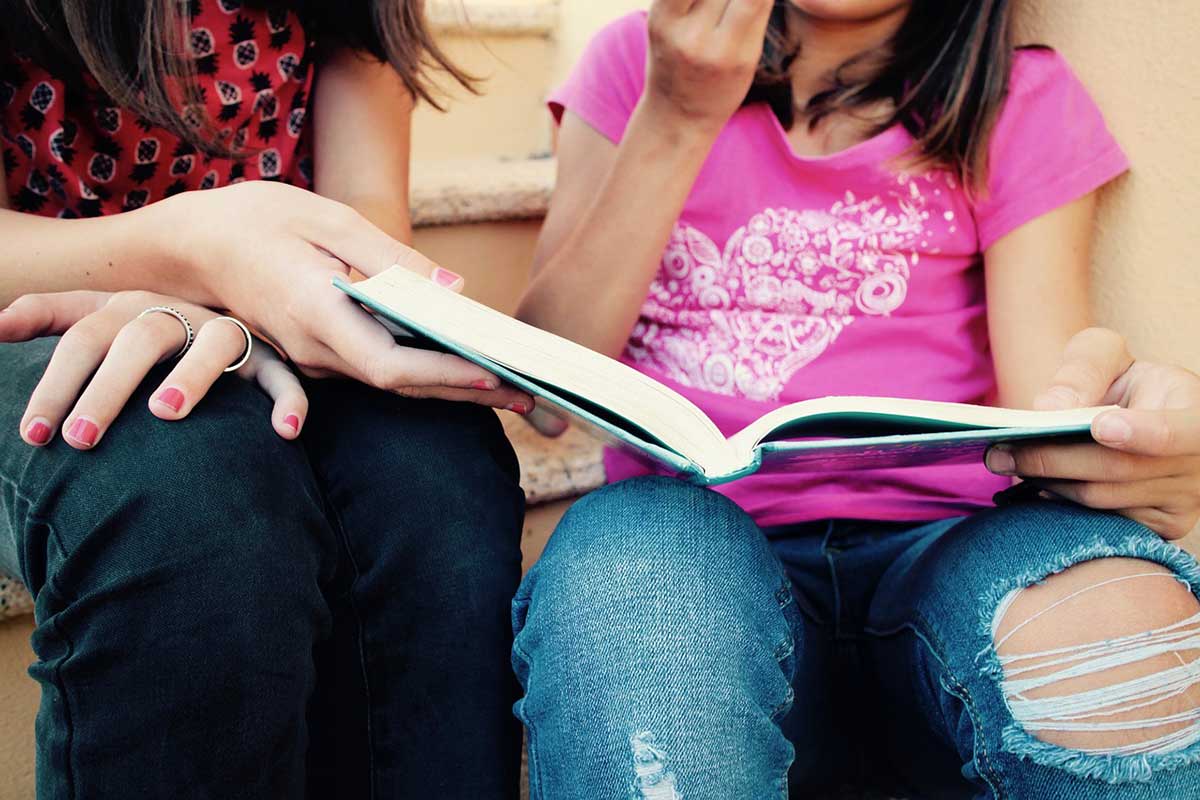
Our “Book Expert of the XXI Century” Contest of teenagers' reviews of their favorite books. contest winners have lots of interesting ideas to share. Papmambook asked them how they choose what they read, what they look for in books, and how they determine whether their reading is valuable. Do they believe that reading should have a practical purpose, or that books can be read just for pleasure? What do they consider “empty” reading that’s not worthwhile? We also asked our winners to compare electronic and paper books to learn which they prefer and whether they believe the format influences the reading experience.
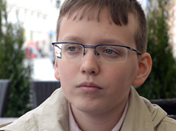
Anton Emekeyev, 14
To be honest, I never thought specifically about the benefit of reading—maybe because I never thought of it as an obligation or duty and never regretted the time I spent reading. The question came up only when I read certain textbooks or when translating long texts from foreign languages, since that involved a lot of rote dictionary work.
Of course, there are some books I need specifically for their usefulness, like reference books, dictionaries, encyclopedias, biographies, guidebooks, and so on. In each of these cases, I know the type of book I’m using and what it’s for. Sometimes, though, you’re just searching for dry facts and what you come across is not just food for thought, but also for emotions and creativity. For example, I was doing research for a school presentation and got the Dictionary of Russian School Argot of the XIX Century. This book really got me thinking and imagining how life was for people my age in my country two hundred years ago. A book like this is worth many historical novels, because it’s true to history, but at the same time it’s emotional and expressive, since it gives you a sense of the humor and metaphors in the school argot of our forebears. I understood that the “link between generations“ is not just an empty phrase—you just have to find that link. Did I think that way when I started reading the book? Of course not. It was a surprise, a discovery, an unexpected bonus.
That’s exactly what I look for in fiction: novelty, unpredictability, originality. Of course, I can read a book just for fun, but it should surprise me or at least not disappoint me. That’s why I’ve read only one or two books by James Fenimore Cooper, Thomas Mayne Reid, or Robert Louis Stevenson, instead of all five, eight, or twelve tomes in my dad’s library. Because The Three Musketeers surprised me, but I couldn’t finish Twenty Years After Both are novels by Alexandre Dumas. . As I see it, even a book you don’t finish isn’t “empty reading.” When you read, you engage with the author, and even if you decide you’re not satisfied with that dialogue, it still took place. It’s just that next time you’ll take better stock of your time when you realize that you enjoy dialogues through the novellas of Roald Dahl, Ray Bradbury, or Julio Cortazar rather than the thick tomes of some Russian and Soviet classics.
I wouldn’t even call reading sports newspapers or glossy magazines a waste of time. The former give me the information I want and in the latter you can find decent essays on books or movies.
The format you choose for reading does affect your impressions of the book. There are several reasons for that. First off, I have bad eyesight and doctors say I should avoid reading on small, flickering screens. Even though the new electronic book readers with “e-ink” don’t flicker, I never quite got used to them. Secondly, we have a big home library at home, put together by my father, and it has practically everything except books by contemporary authors, which I can always get online anyway. I think my father would even be hurt if I replaced his carefully curated bookshelves with a tablet. Thirdly, there’s this respectful feeling of awe you get with a real book—you can flip through it, stick a bookmark in, reminding you that you forgot about it, never finished it—a sort of reproach. You can’t just throw it wherever like the now ubiquitous tablet. That disciplines a reader. And finally, there’s that magic of new books, their unique smell, their binding, the thick paper, the illustrations of different artists, the creak of the spine...You don’t have all that with an ebook. Trust me, it’s worth it. There’s probably something else that I can’t think of now.
Aside from ebooks and paper books, there’s another option I really enjoy, which is audiobooks, especially for shorter works like stories, novellas, or poetry. That way your books can accompany you in the car, on a walk, on a plane, or even to the pool.

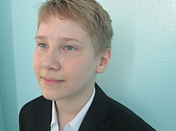
Ivan Agafonov, 12
The main things for me in a book is probably the plot and constant action. It’s important not to leave the main character’s mind. Constant discussion and hashing out of the same subject might force me to set aside a book. That’s why I don’t like to read textbooks or romance novels. I don’t want to read a book if it’s not beautifully written, or has mistakes in grammar or word choice, because it’s just unpleasant to read. I also don’t like when the author uses big words, unless of course the plot requires them. I think any book has some meaning, no matter what.
What’s interesting is that I prefer to listen to books. That is, I prefer audiobooks to any other format. But if I had to choose between ebooks and paper books, I would have to say ebooks, because they are more easily accessible. I have nothing against paper books—they represent tradition and deeper immersion in the atmosphere of the given book. The smell of a book also inspires some particular feelings. But I personally prefer ebooks, because they are more accessible.

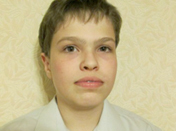
Andrey Leontiev, 13
I think each genre of literature has its own aim. Fiction enriches the reader’s vocabulary and speech, detective novels and stories entertain us, and encyclopedias and popular non-fiction provide new information. I don’t think you should read purely for entertainment. You should always read with a purpose, so that you develop and learn new things. “Empty” reading is when you turn the last page of the book or reach the last lines of an article and can’t even remember what was said at the beginning.
I prefer to read paper books. I usually get them at the library. These are often copies that have been in many hands. I like to hold a book in my hands, leaf through it, feel its smell. That way I can more easily imagine what it will be about. A paper book is more mobile, you can take it with you anywhere you go. It radiates the particular light of its author.

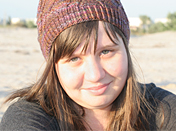
Maria Dorofeeva, 13
I read because I enjoy it, because books let you see different worlds and experience unusual adventures. You don’t have to try to find the purpose in reading—it will find you, because, without even noticing it, some little part of the book stays with you. At a certain point we stop asking ourselves what we should do and know exactly what Klaus Baudelaire Klaus Baudelaire is a protagonist of A Series of Unfortunate Events by Lemony Snicket (pen name of author Daniel Handler). would have done in our place.
Empty reading is when you don’t discover anything new or when you read because you have to, because it was assigned, because you need a grade.
The format of the book doesn’t affect my impressions of it. It’s impossible to buy all the books you want to read: some of them were published a long time ago and never came out in new editions, with others you run out of space to put them at home. When I’m traveling, I prefer an ebook reader, because it’s compact and light and when one book ends, I can start the next. At home, given the choice, I read paper books, because I can feel the paper, breathe in the smell of the ink, study the illustrations. So each format clearly has its pros and cons.

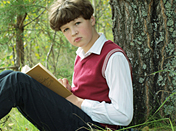
Grigory Volkov, 13
Why do we read? You might as well ask why we sleep. Reading is a natural need for me and I can’t simply not read. It all depends on the book and what it’s written for. Would you read the Bible for pleasure or search for practical advice in Lear’s limericks?
There are three kinds of empty reading: when complete nonesense is presented as truth, when I read on autopilot without paying attention (it happens), or if I don’t find a book interesting. In all three cases, the book doesn’t touch your heart and you’re left with a sense of emptiness. That’s empty reading.
When I read, I don’t pay any particular attention to reality, because, whether I’m reading an ebook or a book on paper, that is my reality. There are advantages and disadvantages to each format. A paper book, for example, is longer-lasting than an ebook—after all, it doesn’t have an expiration date. If you drop it or sit on it, you won’t destroy it, while an ebook reader is vulnerable like any other electronic device. A paper book won’t need to be charged, unlike an ebook. But you can take an ebook reader with you when you travel and save lots of books on it. I see it as a compact library and nothing more.
Electronic and paper books are two different concepts, like writing and speech. Just as writing will not replace speech, electronic books will not replace paper ones. For me, a book is not just a source of information, but also a work of art. The way it’s designed matters. Given the choice, I prefer reading books on paper, but if I can’t easily get a particular book, an ebook will do.

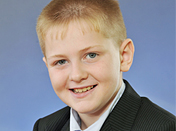
Ilya Olenichev, 13
Books matter to me. They help me develop my thinking and imagination and communicate with others. The books I’ve read have taught me to express my ideas more clearly and precisely.
I think you should absolutely look for the use in book, because you can find the answers to many questions, see yourself in the protagonists, embody their ideals in your life. If I read a book and it doesn’t hook me, I would consider that empty reading.
I prefer to read on paper with large font. I want to hold a book in my hands, smell it before I even start reading it, leaf through it, and see the illustrations. I also like that you can place the book on the shelf, where it will wait for you to pick it back up.


Asya Filippova, 11
When I sit down to read, I never think about the use the book will bring me. Instead, I look forward to the joy of reading and time well spent. Even if I don’t have an aim in mind, any book will teach me something, even a bad one. You will always find something new for yourself or learn a lesson from someone’s actions. You can understand that you shouldn’t write, or act, or spend your time a certain way. I don’t think you can separate the pleasure and use of reading. Empty reading is probably when you read but don’t feel like it, or when you’re not thinking or learning. It’s when you aren’t thinking about what you’ve read. After all, you can read mechanically, even aloud, while thinking about something else.
A good, interesting, living work is wonderful in any format, even if it’s printed on gray newspaper or written out in awful handwriting or downloaded electronically. The format doesn’t take away from the impression you get from a book. But I prefer to read books on paper, even if they’re old, have yellow pages, and are falling apart. I love the smell of books, love turning the pages and feeling the weight of the book in my hands. It’s fun to imagine who may have read an old book before you. And a book with beautiful illustrations is like a party. Books like that are works of art made by many talented people.

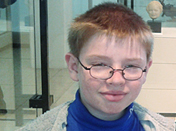
Lyon Bebekher, 10
I think a book should absolutely serve some purpose. After all, books explain the meaning of life to us, show us how we should act and live. They’re like textbooks in a way, only that you can read them without getting bored. Life without books would be very gray, nobody would know anything, and it would be boring. All of culture is like that—it gives us joy but it teaches us too. Books, for example, teach us history. We study history to follow the example of those who did good things and not repeat what was bad. We can learn just the same way from fairy tales. “Little Red Riding Hood” tells us we should listen to adults because they know what they’re talking about and have more experience. The Nutcracker can help you understand that a kind heart can overcome even evil magic. Without books there would be no history and people would be uneducated.
I think every book has some point, because when an author writes a book, it’s not just his brain at work, but his soul as well. And that’s where the meaning comes from, even in the silliest story.
I don’t think there’s any difference between paper books and ebooks. But I think it does make a difference for the author whether he writes on paper or types the book up on the computer. When he writes on paper, he feels the book with his hands, feels what he’s writing. He pours out his soul with his pen. With a computer, you just press the keys, so a book loses its brightness. These are two different things: writing a book on a computer or on paper, and then transferring it to a computer.
The text, but also the illustrations and even the font help a book express its meaning. An ebook has the same font for all books and you can’t always see the pictures. A paper book has more soul.

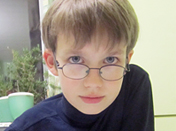
Fyodor Dyomin, 12
It’s important that a book not be too short. The longer it is, the more engaging it is. It’s nice when a book has a sequel so that you when you’re done reading you know that the story isn’t over. It’s also important that the chapter titles and blurbs don’t give away what’s coming next.
I think it’s better that a book not have any illustrations, so you can imagine things for yourself. If the pictures are too childish, I just close the book. There are books I start reading and don’t finish. I don’t like fairy tales or fantasy at all.
To be honest, I don’t care if the book is on paper or an ebook. You can take an ebook with you anywhere but a paper book is easier to read because you can turn the pages. An ebook reader is small and light but it’s still harder to read than on paper. On the other hand you can download an ebook rather than buying the book in a store. Either way, I prefer to read paper books.
Translated from the Russian by Alisa Cherkasova
Cover image: maxpixel.net
This article was originally published in 2015
Follow us on Facebook.
